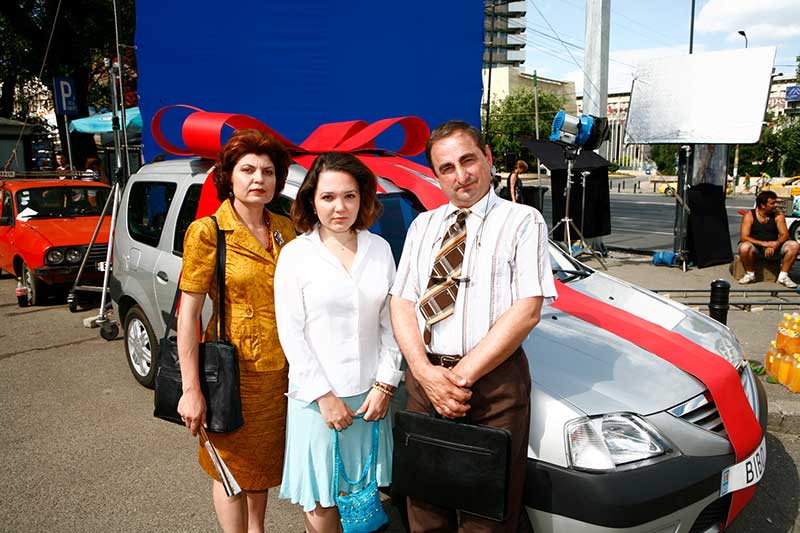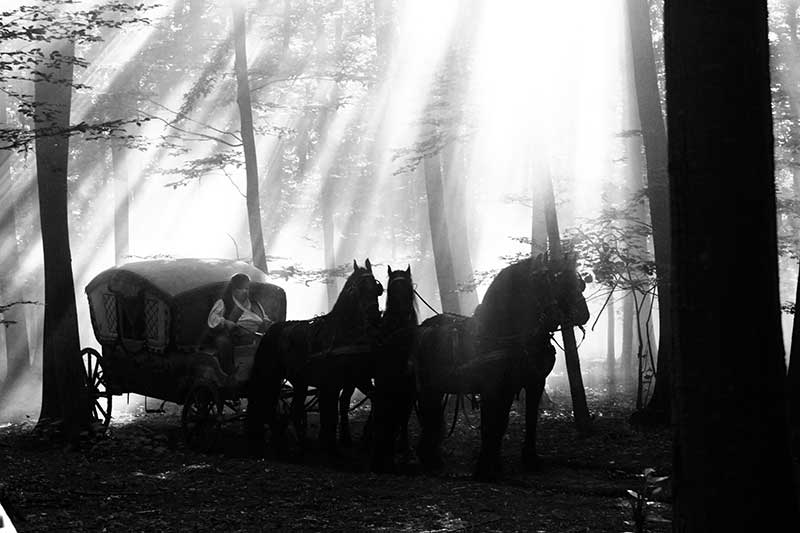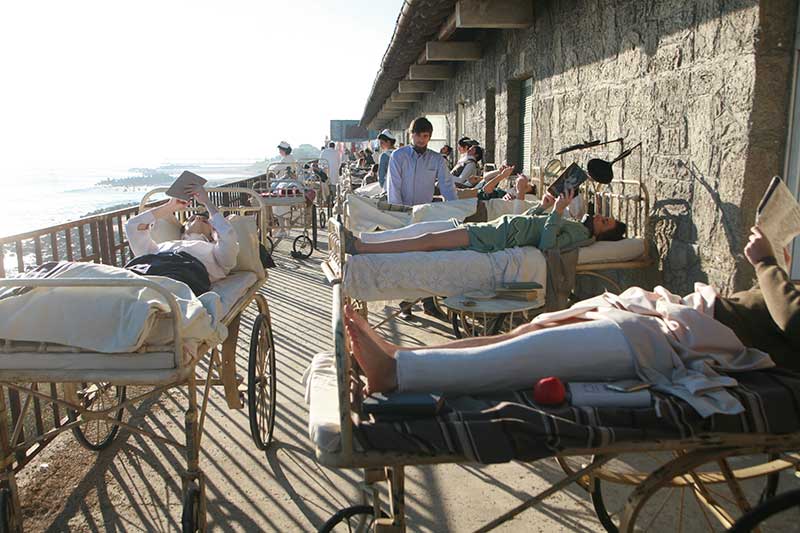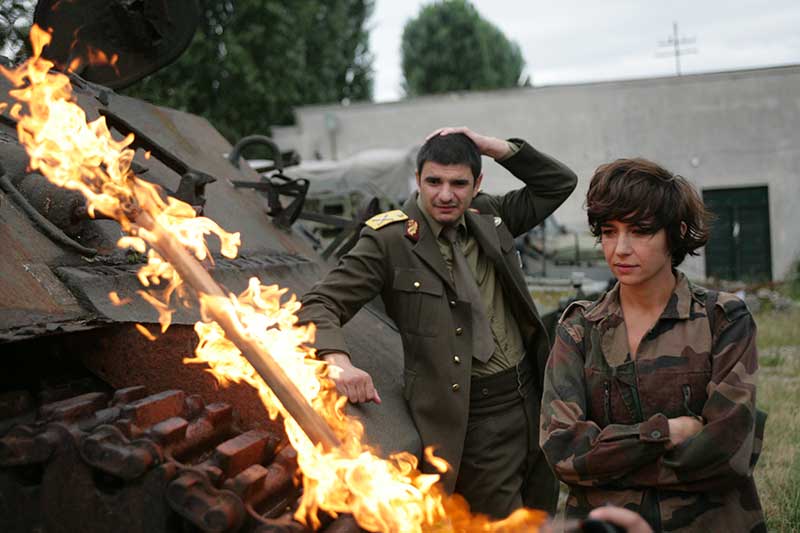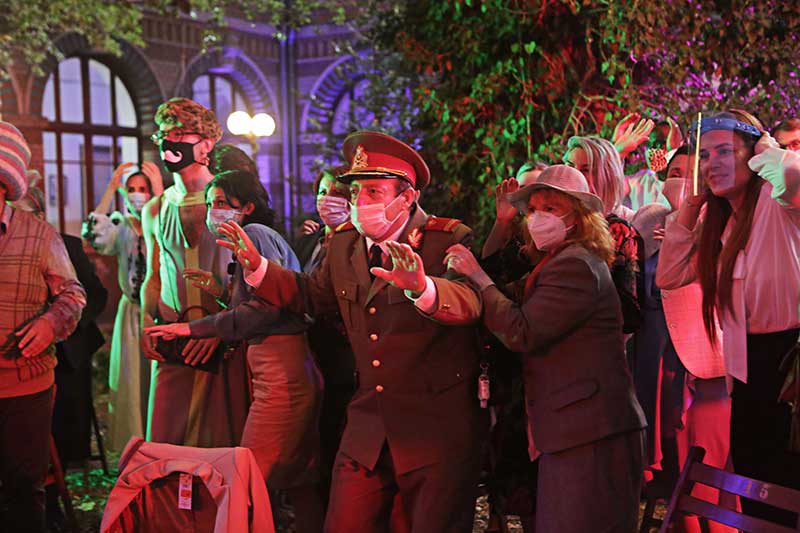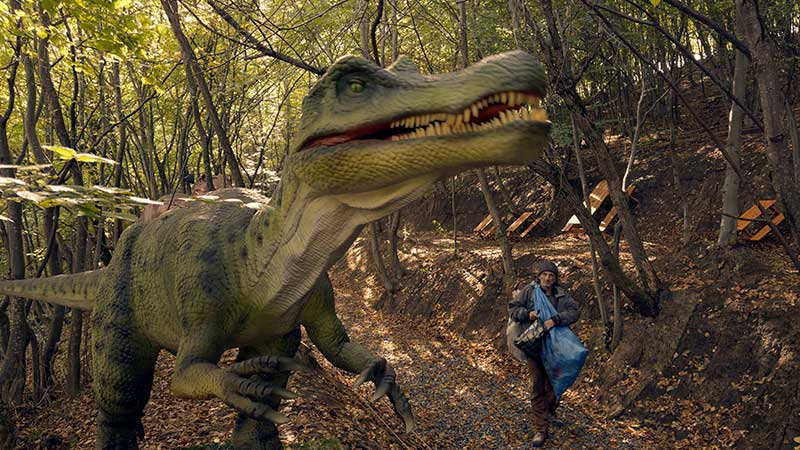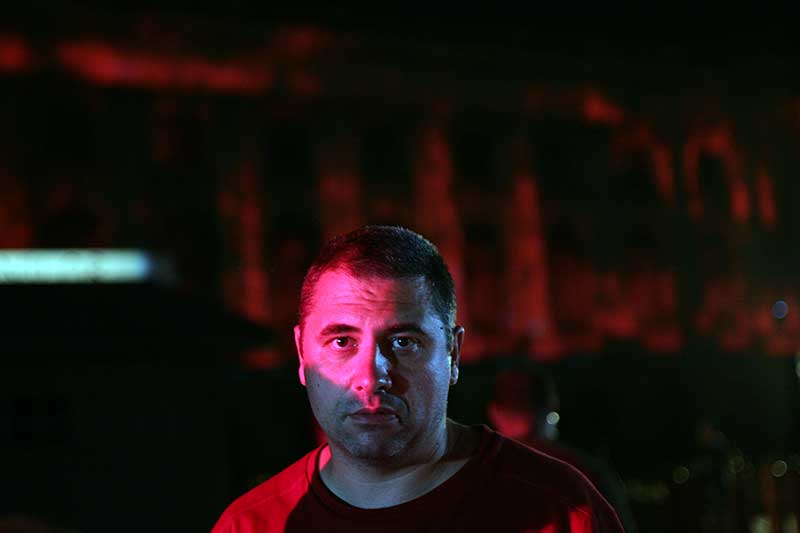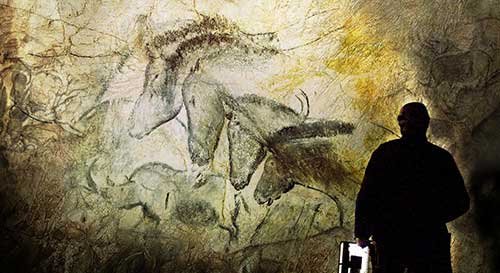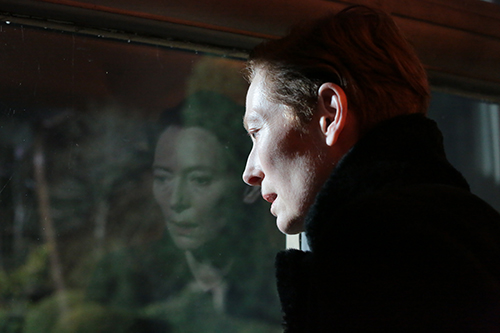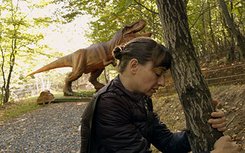
Radu Jude, a Restless Filmmaker
The work of Radu Jude (born in 1977 in Bucharest) is, in many respects, the best kept secret of contemporary cinephilia. Although only a fraction of its profusion and scope has reached France—largely in the wake of the 2021 Golden Bear award for Bad Luck Banging or Loony Porn—this filmography, assembled at breakneck speed, ranges across every terrain with great formal fluidity.
Jostling cinema by confronting it with memory impasses and present day aberrations, the filmmaker carries it, with the vigour of farce, to its highest pitch of disquiet, thus establishing himself as one of the most stimulating voices in world cinema today.
Radu Jude films Europe from post-communist Romania, putting the latter at the centre of his work with a scathing eye, free of all allegiances and polite decorum. Singular as it is, his œuvre resists definition: it is at once fiercely political, encyclopaedic in culture, implacably precise in historical and dialectical terms, and possessed of a striking comic verve—always irreverent and farcical—echoing Karl Marx’s famous maxim that history repeats itself ‘first as tragedy, second as farce’.
Jostling cinema by confronting it with memory impasses and present day aberrations, the filmmaker carries it, with the vigour of farce, to its highest pitch of disquiet, thus establishing himself as one of the most stimulating voices in world cinema today.
The key, perhaps, to approaching this plural and fascinating body of work lies in how the filmmaker’s undiminished, palpable anger is coupled with his refusal of all cynicism, all Manichaean intellectual laziness, and all mawkish compassion. Because he holds cinema and its viewers in high regard, he prefers to confront them—armed with a grave, corrosive humour—with Europe’s history and the sorry farce played by an ill digested past. This is especially evident in his documentaries and fictions on the genocide of the Jews by the Romanian authorities during the Second World War, amongst them the remarkable I Do Not Care If We Go Down in History as Barbarians (2018). With the same curiosity and lucidity, he also embraces the contemporary and its violence: exploitation at work, indecent indifference to the suffering of others, social media, and the world of advertising.
In an opening title card for “Caricaturana”, a short film made in 2021, Radu Jude quotes Baudelaire on the caricaturist Honoré Daumier, in a quatrain that could just as well serve as a portrait of the filmmaker:
He is a satirist, a mocker;
Yet the force with which
He paints Evil and its aftermath,
Proves the beauty of his heart. ◼
* Theatrical releases on September 24 and October 15 (Météore Films)
Related articles
In the calendar
Portrait du cinéaste roumain Radu Jude
Photo © Silviu Ghetie/Micro Film
